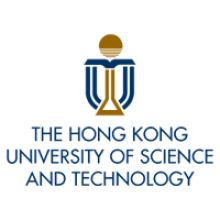Hong Kong’s top technology university is branching into mainland China with an unconventional new structure.
The Hong Kong University of Science and Technology (Guangzhou), scheduled to open next year, will not be organised by faculty or department, but into four “hubs”: function, information, systems and society. These buzzwords fit right into the booming start-up landscape of Guangdong province, where HKUST hopes to increase its commercial prospects.
Lionel Ni, who was recently appointed HKUST (GZ)’s founding president, told Times Higher Education that this structure is a “new pedagogy to lead cross-disciplinary learning”.
He saw the campus as being a “big part” of plans for the Greater Bay Area, a state initiative to create a technology hub linking Hong Kong, Macao and Guangdong, of which Guangzhou is the capital.
HKUST already has research platforms in the nearby cities of Shenzhen and Foshan. Nansha, the district where the new campus will be based, will be home to a planned technology park. “This will fuel and speed up commercialisation of our research from both campuses,” Professor Ni said.
Each hub, headed by a dean, will have three or four “thrust areas”. Although students will have much greater flexibility in course selection, they will still receive degrees in recognisable fields such as artificial intelligence or financial technology (fintech).
“We need to nurture students who have the ability to identify and solve problems. To do this they would need to bridge diverse knowledge from multiple disciplines,” Professor Ni said.
Theoretically, the two campuses are only a two-hour drive apart. But practically, they are on opposite sides of a border that separates different political, monetary and higher education systems.
Therefore HKUST (GZ) will be set up as a joint-venture university, using the same structure as foreign branch campuses such as the University of Nottingham Ningbo, or NYU Shanghai.
It will be a separate legal and financial entity to Hong Kong. However, research facilities, institutes, academic programmes and some administrative processes may be shared.
One hurdle for HKUST (GZ) is that the border is largely still closed to non-residents of either side, because of Covid restrictions.
“Having our project caught in the middle of a pandemic has unavoidably brought hindrance and inconvenience,” Professor Ni said. “For example, we cannot have physical meetings with our stakeholders, especially our Guangzhou partners.”
But that has not stopped HKUST(GZ) from ploughing ahead. It has already given offers to 50 faculty, out of 1,000 job applications received. Professor Ni said that they have a goal to fill 400 vacancies in the next five years.
It has also admitted 260 postgraduates via a pilot scheme launched in 2019-20. They are currently studying under the new curriculum structure, temporarily in Hong Kong until they can transfer.
“We did not want to wait until the Guangzhou campus is open to recruit students,” Professor Ni said. “Otherwise we may have to wait three or four years before the first batch can graduate.”
When plans for the new campus were announced last year, Carsten Holz, a HKUST economics professor, asked in a critique if the institution could protect Hong Kong levels of academic freedom and labour rights in a mainland campus.
This is a similar conundrum faced by the foreign partners of other joint-venture universities, which are generally underwritten by the Chinese partner.
Professor Holz described the lure of a project as follows: “Imagine you are running a university and someone comes to you and says: ‘Why don’t you set up another, similar university for me? You can innovate and experiment to your heart’s content and design the campus however you want…You decide on all academic matters: who to hire, at what salary, and how to run the university. We’ll just pay.’ And now imagine that this is not a fairy tale.”
Register to continue
Why register?
- Registration is free and only takes a moment
- Once registered, you can read 3 articles a month
- Sign up for our newsletter
Subscribe
Or subscribe for unlimited access to:
- Unlimited access to news, views, insights & reviews
- Digital editions
- Digital access to THE’s university and college rankings analysis
Already registered or a current subscriber? Login










